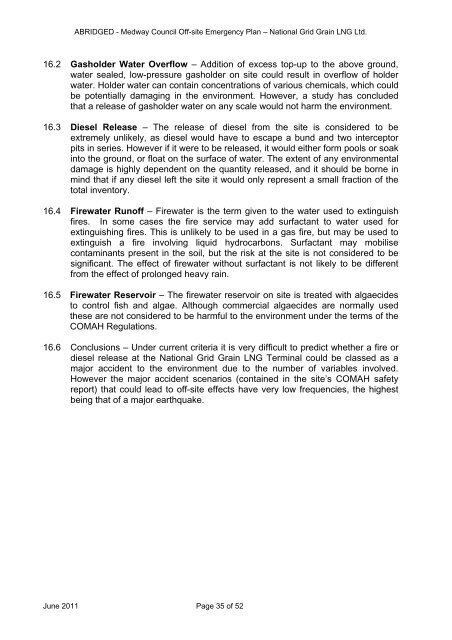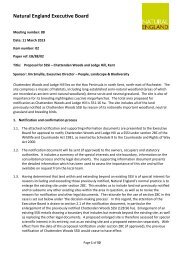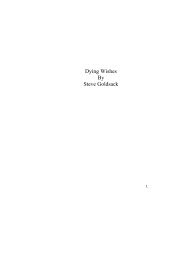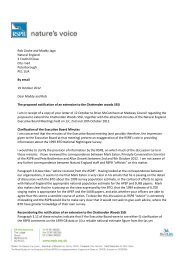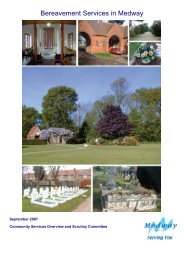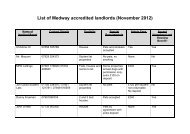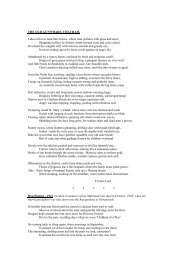MEDWAY COUNCIL COMAH OFF-SITE EMERGENCY PLAN ...
MEDWAY COUNCIL COMAH OFF-SITE EMERGENCY PLAN ...
MEDWAY COUNCIL COMAH OFF-SITE EMERGENCY PLAN ...
Create successful ePaper yourself
Turn your PDF publications into a flip-book with our unique Google optimized e-Paper software.
ABRIDGED - Medway Council Off-site Emergency Plan – National Grid Grain LNG Ltd.<br />
16.2 Gasholder Water Overflow – Addition of excess top-up to the above ground,<br />
water sealed, low-pressure gasholder on site could result in overflow of holder<br />
water. Holder water can contain concentrations of various chemicals, which could<br />
be potentially damaging in the environment. However, a study has concluded<br />
that a release of gasholder water on any scale would not harm the environment.<br />
16.3 Diesel Release – The release of diesel from the site is considered to be<br />
extremely unlikely, as diesel would have to escape a bund and two interceptor<br />
pits in series. However if it were to be released, it would either form pools or soak<br />
into the ground, or float on the surface of water. The extent of any environmental<br />
damage is highly dependent on the quantity released, and it should be borne in<br />
mind that if any diesel left the site it would only represent a small fraction of the<br />
total inventory.<br />
16.4 Firewater Runoff – Firewater is the term given to the water used to extinguish<br />
fires. In some cases the fire service may add surfactant to water used for<br />
extinguishing fires. This is unlikely to be used in a gas fire, but may be used to<br />
extinguish a fire involving liquid hydrocarbons. Surfactant may mobilise<br />
contaminants present in the soil, but the risk at the site is not considered to be<br />
significant. The effect of firewater without surfactant is not likely to be different<br />
from the effect of prolonged heavy rain.<br />
16.5 Firewater Reservoir – The firewater reservoir on site is treated with algaecides<br />
to control fish and algae. Although commercial algaecides are normally used<br />
these are not considered to be harmful to the environment under the terms of the<br />
<strong>COMAH</strong> Regulations.<br />
16.6 Conclusions – Under current criteria it is very difficult to predict whether a fire or<br />
diesel release at the National Grid Grain LNG Terminal could be classed as a<br />
major accident to the environment due to the number of variables involved.<br />
However the major accident scenarios (contained in the site’s <strong>COMAH</strong> safety<br />
report) that could lead to off-site effects have very low frequencies, the highest<br />
being that of a major earthquake.<br />
June 2011 Page 35 of 52


